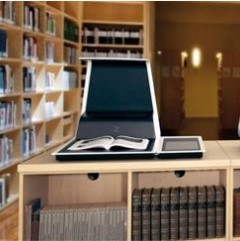
THE UNIVERSITY OF FORT HARE IS THE TECHNOLOGY LEADER OF TERTIARY EDUCATION FACILITIES IN SOUTHERN AFRICA.
October 21, 2021 || FCTEC
“Fort where?” You may ask. Surely this is a mistake. Surely I must be talking about one of the more renowned South African universities? I am not. Situated in the small town of Alice in the Eastern Cape, this alma mater of one of the greatest leaders our country has ever seen, is not resting on the laurels of its heyday. In fact, since the birth of our democracy, UFH has endeavored to provide accessible quality tertiary education to South African students. Upon seeing what an impact a good education can make on the lives of bright young South Africans; the university is doing everything they can to give students access to knowledge.
In South Africa, as in most of Africa, educational institutions are pushing boundaries to overcome our unique obstacles. Students from low-income households who are given the opportunity for further education cannot always afford the tools to streamline their educational career. While most of the world takes for granted that students will have their own laptops and software, this is not necessarily the case for young South Africans. Something as simple as walking into a library and scanning content onto a flash drive to access later, on your computer, is not always possible.
In Africa we have an attitude that you don’t find elsewhere, it is a resilience and an attitude to problem solving that is outside of the box. Instead of focusing on what we don’t have, we focus on how we can optimally use what we do have. We call it the AfriCAN attitude. Students may not all have computers, but they do all have a screen with some storage space, in fact everyone of us have one in our pockets every day – our mobile phones. The University of Fort Hare recognised a need and collaborated with FCTEC to come up with a solution. Instead of the stock standard printer/scanner in the library, UFH equipped their libraries with the Zeutschel Zeta book scanners with “Scan to Mobile” software installed. Students can now scan library content straight to their mobile phones at a high resolution without having to worry about it taking up too much storage space. What is normally seen as a tool for entertainment is now used as a crucial tool to access, store, and have educational content on demand. Unlike most other scanners that transfer the content of a page as an image, this content is searchable, and students can find the data within the content with more ease than having access to the actual books. Not only can they carry their own relevant mini library with them on their phones, but they will be able to find the information they need more accurately.
The students love it. Just like a lot of young adults these days, they spend a lot of time on their mobile phones. Only, instead of updating their statuses, they are updating their skills and knowledge to ensure a better future for themselves and the country as a whole. Hopefully the success of this system and the University of Fort Hare’s commitment to leading the way in student focused technology, will serve as an inspiration to other tertiary institutions and together, will embrace client-focused technology towards a digital tomorrow.